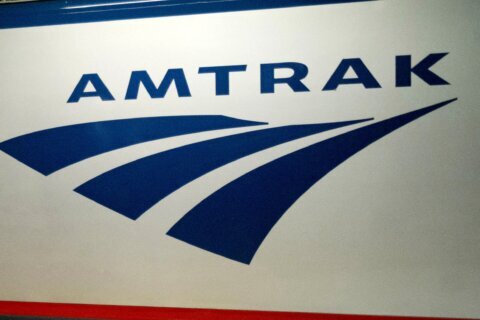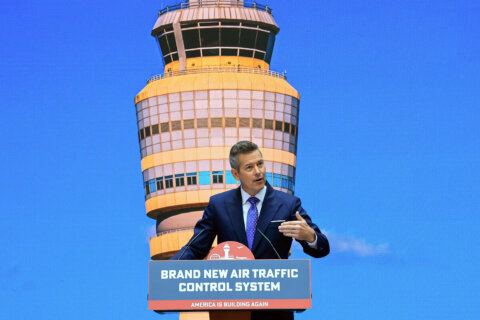WASHINGTON — Proposed toll lanes on Interstate 66 west of the Capital Beltway will require no upfront funding from Virginia and the state will get a $500 million payment from the company selected to build the lanes.
Gov. Terry McAuliffe announced Thursday that the state will ink a 50-year deal with bidder I-66 Express Mobility Partners to build and operate the lanes, which would run from the Beltway to Gainesville. The deal is separate from a plan to add rush hour tolls along I-66 east of the Beltway.
Cintra, Meridam, Ferrovial and Allan Myers teamed up to submit the selected bid. Ferrovial, which owns Cintra, is a Spanish company that has been involved in a series of similar toll road deals elsewhere in the country, some of which have fallen through.
The firms have pledged to spend $800 million on transit projects over the next 50 years. They plan to spend another $350 million to improve mobility through the 66 corridor. The firms will be responsible for all upfront costs and all maintenance of the lanes.
“And just for icing on the cake, on top of all of that, Express Mobility Partners will write the Commonwealth of Virginia a check for $500 million that we’ll receive early next year,” McAuliffe said.
He called the deal a model for other states considering similar projects.
“Tolling revenue is very important. It is also very lucrative,” McAuliffe said. “If we are going to give tolling revenue away, we’re going to negotiate a very, very tough deal.”
Transurban and Skanska combined for the second bid under the name Express Partners. Transurban, an Australian company, operates the 95 and 495 express lanes and is expected to soon convert the 395 HOV lanes to express lanes.
State officials were willing to publicly finance and build the project without a private partner, which McAuliffe said helped negotiate a better deal for taxpayers.
With no upfront state funding needed, $300 million in state road funds that had been allocated for the express lanes project would be available for other projects.
The two competing bidders had been allowed to include up to $600 million in state funding in their financial proposals.
Under the terms, two express lanes would be built in each direction. The lanes will operate similarly to express lanes that run along Interstates 495 and 95 in Virginia.
Construction is expected to begin next year and the lanes should open to traffic in 2022.
Like other express lanes elsewhere in the region, cars with three or more occupants and an E-ZPass Flex in HOV mode will travel for free. Cars with one or two people will pay a toll that adjusts based on the number of vehicles using the lanes.
A higher toll is meant to discourage drivers from using the lanes in order to keep traffic moving. Lower tolls at times when there are fewer cars in the lanes are meant to attract drivers to the lanes.
This deal is separate but related to plans to toll solo drivers during the rush hour on I-66 east of the Beltway. Tolls are set to begin in mid to late 2017 for drivers traveling east in the morning and west in the afternoon.
Virginia plans to raise the HOV requirement from two to three people once the express lanes west of the Beltway open, expected in 2021.
The proposed agreement states that changes to HOV rules inside the Beltway that would lower the number of passengers required to qualify as a high occupancy vehicle or that would reduce the length of the tolling periods would likely result in a payment from the state to the companies operating the toll lanes outside the Beltway.







